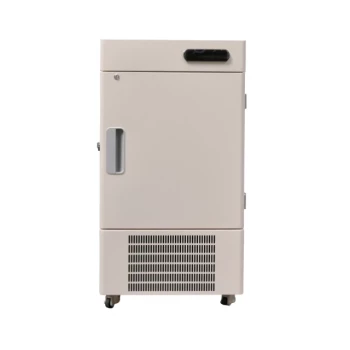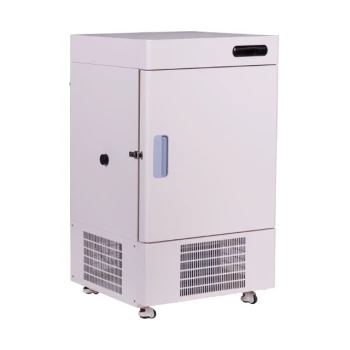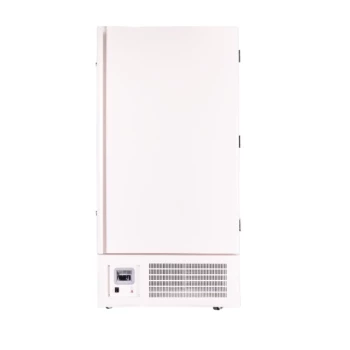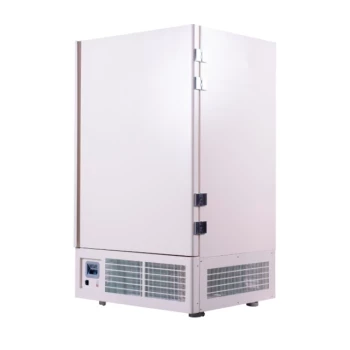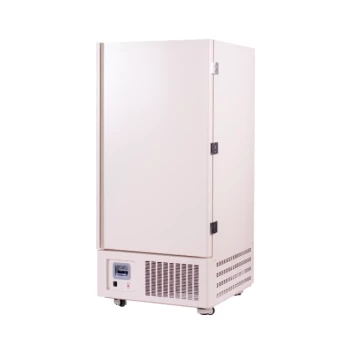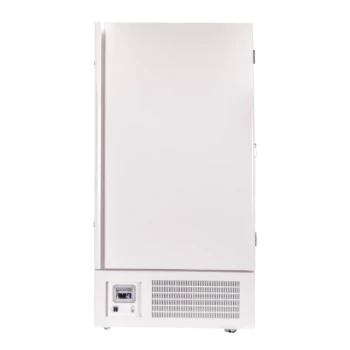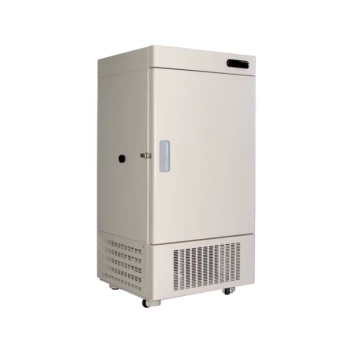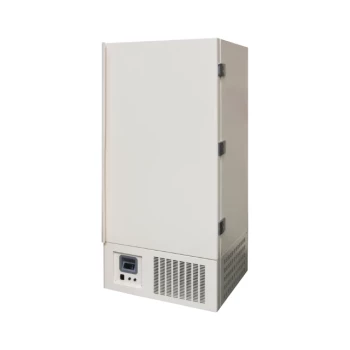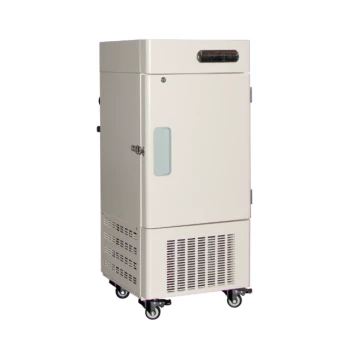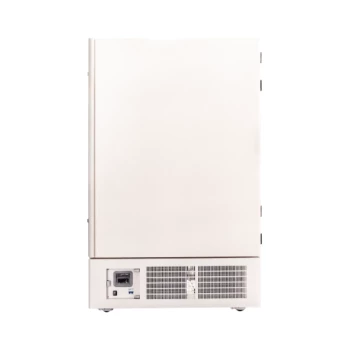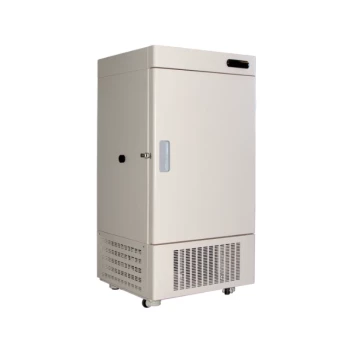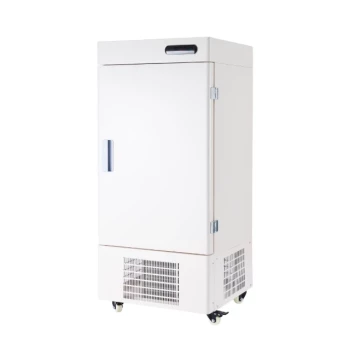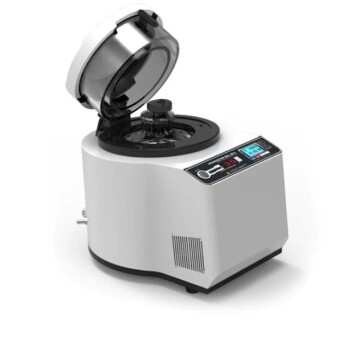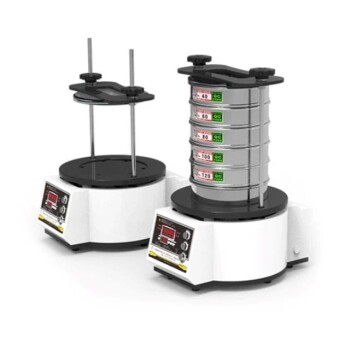In most cases, yes. Storing biological samples at -70°C is a well-established and safe practice for a wide range of materials, including nucleic acids, proteins, bacteria, and viruses. This temperature has been the historical standard for ultra-low temperature (ULT) freezers and is proven to maintain the integrity of many sample types for years, and even decades.
The core issue isn't whether -70°C is safe, but for how long and for which specific samples. For the vast majority of common laboratory applications, -70°C provides a robust and reliable environment for preserving sample viability and molecular integrity.
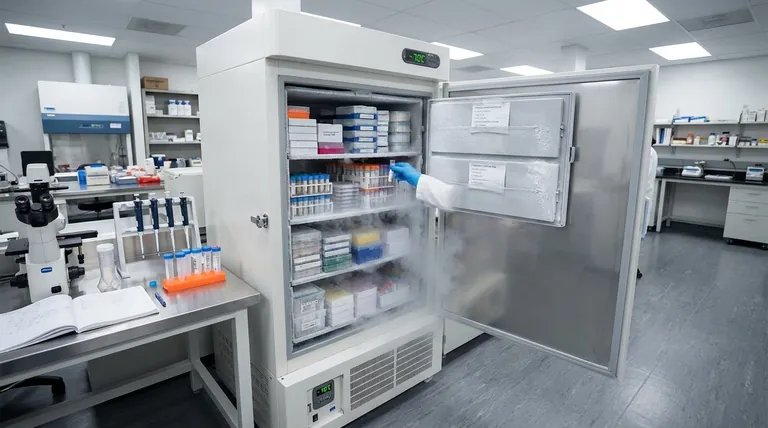
Why -70°C Became a Standard
A Foundation in Freezer Technology
Historically, the first generation of ultra-low temperature freezers were designed to reliably operate at temperatures between -65°C and -70°C.
This technological benchmark established -70°C as the standard for long-term storage, and decades of research have been successfully conducted using samples stored under these conditions.
The Point of Diminishing Returns
For many biological processes, -70°C is well below the temperature at which chemical and enzymatic degradation slows to a near-standstill.
While colder is often better, the incremental benefit of going from -70°C to -80°C is negligible for a large number of common sample types and storage durations.
Sample Stability at -70°C
Nucleic Acids (DNA and RNA)
Both DNA and RNA can be safely stored at -70°C for long-term preservation. For shorter durations, -20°C is often sufficient, but -70°C is preferred for archival purposes to minimize any potential degradation.
Proteins and Enzymes
Most proteins are stable when stored at -70°C. This temperature effectively halts the protease activity and chemical modifications that can degrade protein samples over time.
Bacteria and Viruses
Cellular and viral samples are generally safe at -70°C. This temperature is low enough to prevent microbial growth and preserve the structural integrity of viral particles for future analysis or culture.
Clinical Samples
Specific long-term studies have demonstrated the exceptional stability of certain clinical samples at this temperature.
For example, plasma stored at -70°C showed no detectable deterioration in reactivity for critical viral markers like anti-HIV, anti-HCV, and HBsAg over periods of 11 to 20 years.
Key Considerations for Your Protocol
The Importance of Sample Type
While -70°C is a reliable baseline, the most critical factor is the nature of your specific sample. Some extremely sensitive molecules or cell lines may have different optimal storage requirements.
Validating Your Own Success
Many laboratories have successfully stored a wide variety of samples at -70°C for extended periods. There is a strong community precedent for the effectiveness of this storage temperature.
Storage Duration is a Key Variable
The decision between -20°C and -70°C for samples like nucleic acids often comes down to intended storage duration. For anything beyond short-term use, -70°C provides a greater margin of safety against degradation.
Making the Right Choice for Your Samples
- If your primary focus is short-to-medium term storage (months to a few years): Storing nucleic acids, proteins, and microbial stocks at -70°C is a proven, safe, and effective strategy.
- If your primary focus is long-term archival (many years to decades): Extensive data shows that -70°C is sufficient for preserving many sample types, including plasma, for over a decade without degradation.
- If you are establishing a new biobank: Relying on -70°C is a historically validated approach that balances sample integrity with practical energy and equipment considerations.
Ultimately, storing your samples at -70°C is a scientifically sound practice supported by decades of successful application.
Summary Table:
| Sample Type | Recommended Storage Temperature | Key Benefit |
|---|---|---|
| Nucleic Acids (DNA/RNA) | -70°C for long-term archival | Minimizes degradation over decades |
| Proteins & Enzymes | -70°C | Halts protease activity and chemical modifications |
| Bacteria & Viruses | -70°C | Prevents microbial growth, preserves structural integrity |
| Clinical Samples (e.g., plasma) | -70°C | Stable for critical markers for 11-20+ years |
Ensure your lab's sample integrity with reliable ultra-low temperature storage solutions from KINTEK.
Whether you're handling sensitive nucleic acids, proteins, or clinical samples, the right equipment is crucial for maintaining viability over the long term. KINTEK specializes in high-performance lab equipment, including ultra-low temperature freezers, designed to meet the rigorous demands of modern laboratories.
Contact our experts today to discuss your specific storage needs and discover how our solutions can enhance your sample preservation protocols, save energy, and provide peace of mind for your research or biobanking projects.
Visual Guide
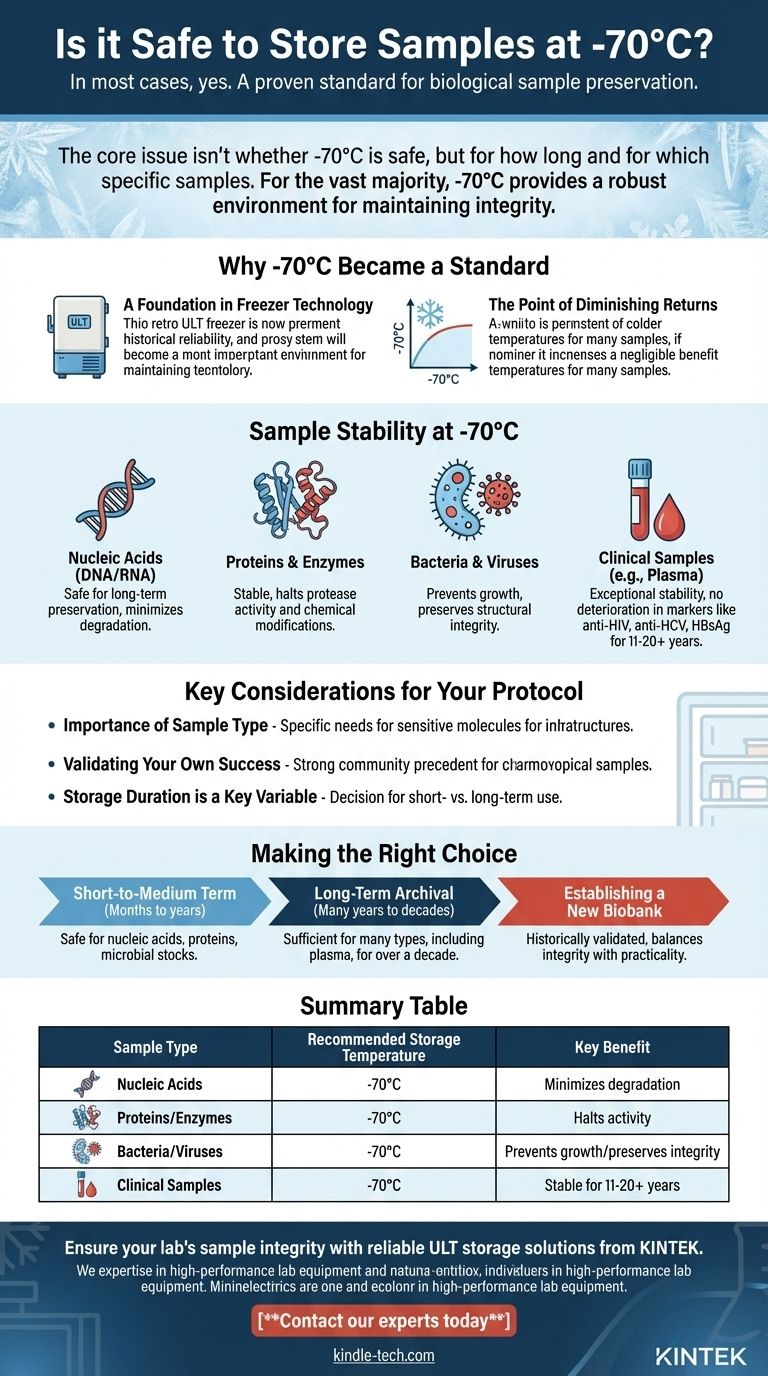
Related Products
- 58L Precision Laboratory Ultra Low Temperature Upright Freezer for Critical Sample Storage
- 108L Vertical Ultra Low Temperature ULT Freezer
- 508L Advanced Vertical Ultra Low Temperature Freezer for Critical Laboratory Storage
- 808L Precision Laboratory Vertical Ultra Low Temperature Freezer
- 408L Advanced Vertical Laboratory Ultra Low Temperature Freezer for Critical Research Material Preservation
People Also Ask
- What is the role of an ultra-low temperature (ULT) freezer in the freeze-thaw synthesis of hydrogel nanocomposites?
- How do ultra-low temperature freezers work? Unlocking the Secrets of -86°C Sample Preservation
- What are the recommendations for storing mRNA vaccines in ultra-low temperature freezers? Ensure Absolute Stability at -80°C
- What is the temperature control capability of ultra-low freezers? Precise Stability Down to -86°C
- How do ultra-low temperature freezers achieve such low temperatures? The Science Behind -80°C Cooling
